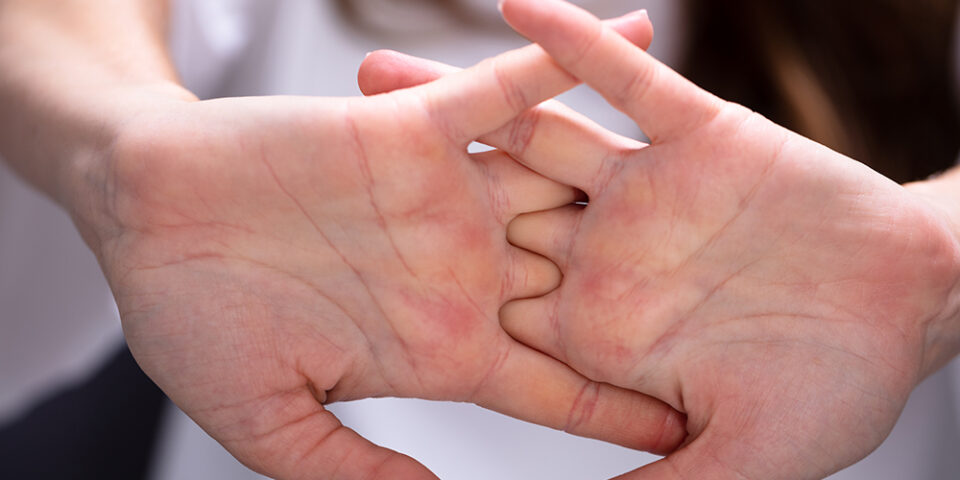Should I be worried about my joints cracking and popping?
From cracking your knuckles, noticing your ankle pop, or hearing your knee creak as you stand up to feeling your neck pop after time spent looking down at your phone or computer – more than likely, you have experienced your joints cracking as you go about your average day. Are these sounds normal or a sign of a potential health problem?
Hannah Jenkins, PA, answered common questions about joint health and when to see a doctor about joint cracking.
Are cracking joints normal?
“Crepitus, or the cracking, creaking and crunching sounds that occur with joint movement, are usually common and not a cause for concern,” said Jenkins.
What causes cracking joints?
You have different joints serving different purposes all throughout your body, and the reasons they might crack or make noise as you move are pretty varied, too. If you find yourself feeling relief after popping your knuckles, it could be because of the release of nitrogen gas bubbles that build up within the joint fluid over time.
Despite all those old wives’ tales, cracking your knuckles does not lead to arthritis or make your knuckles any bigger.
“It’s equally common to experience that kind of painless popping, creaking or cracking in the shoulder, ankle or knee when working out or performing repetitive movements,” said Jenkins. “That’s caused by the increased friction when a tight muscle or tendon moves along a bony surface. Usually, that can be improved by increased stretching to loosen the muscles prior to exercising.”
When should you see a doctor about cracking joints?
If the noise from your joints is painful, your joints are swollen or you underwent an injury prior to the noise beginning, it’s worth scheduling an appointment with a doctor to take a closer look. While cracking your joints doesn’t cause arthritis, it can be one of the early symptoms due to the wear and tear of cartilage at the joint surface.
Keep moving to minimize cracking joints
“The most effective way to keep your joints healthy is to keep moving,” said Jenkins. “In orthopedics, we like to say ‘motion is lotion’ because continued movement helps distribute the joint fluid that lubricates joint surfaces. Think of using WD-40 to oil the hinges on a squeaky door and make it move more easily.”
Jenkins recommended low-impact exercises like walking, riding a bicycle, swimming or using an elliptical to stay active and preserve joint function.
Find an orthopedic specialist you trust
Find a provider who’s right for you by viewing their online profiles, star ratings and reviews.
Find an Orthopedic Doctor

